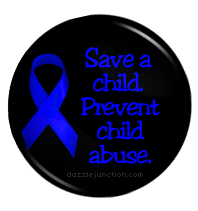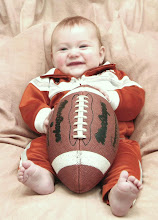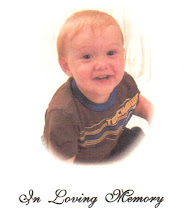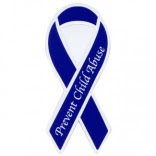Recognizing Child Abuse: What Parents Should Know
The first step in helping abused children is learning to recognize the symptoms of child abuse.Although child abuse is divided into four types -- physical abuse, neglect, sexual abuse, and
emotional maltreatment -- the types are more typically found in combination than alone. A
physically abused child for example is often emotionally maltreated as well, and a sexually
abused child may be also neglected. Any child at any age may experience any of the types of
child abuse. Children over age five are more likely to be physically abused and to suffer
moderate injury than are children under age five.
1. Recognizing Child Abuse
2. Signs of Physical Abuse
3. Signs of Neglect
4. Signs of Sexual Abuse
5. Signs of Emotional Maltreatment
________________________________________________________
RECOGNIZING CHILD ABUSE
Experienced educators likely have seen all forms of child abuse at one time or another. They are
alert to signs like these that may signal the presence of child abuse.
The Child:
• Shows sudden changes in behavior or school performance;
• Has not received help for physical or medical problems brought to the parents' attention;
• Has learning problems that cannot be attributed to specific physical or psychological
causes;
• Is always watchful, as though preparing for something bad to happen;
• Lacks adult supervision;
• Is overly compliant, an overachiever, or too responsible; or
• Comes to school early, stays late, and does not want to go home.
The Parent:
• Shows little concern for the child, rarely responding to the school's requests for
information, for conferences, or for home visits;
• Denies the existence of -- or blames the child for -- the child's problems in school or at
home;
• Asks the classroom teacher to use harsh physical discipline if the child misbehaves;
• Sees the child entirely bad, worthless, or burdensome;
• Demands perfection or a level of physical or academic performance the child cannot
achieve; or Looks primarily to the child for care, attention, and satisfaction of emotional needs.
The Parent and Child:
· Rarely touch or look at each other;
· Consider their relationship entirely negative; or
· State that they do not like each other.
· None of these signs proves that child abuse is present in a family. Any of them may be
found in any parent or child at one time or another. But when these signs appear
repeatedly or in combination, they should cause the educator to take closer look at the
situation and to consider the possibility of child abuse. That second look may reveal
further signs of abuse or signs of a particular kind of child abuse.
_____________________________________________________________
SIGNS OF PHYSICAL ABUSE
Consider the possibility of physical abuse when the child:
· Has unexplained burns, bites, bruises, broken bones, or black eyes;
· Has fading bruises or other marks noticeable after an absence from school;
· Seems frightened of the parents and protests or cries when it is time to go home from
school;
· Shrinks at the approach of adults; or
· Reports injury by a parent or another adult caregiver.
Consider the possibility of physical abuse when the parent or other adult caregiver:
· Offers conflicting, unconvincing, or no explanation for the child's injury;
· Describes the child as "evil," or in some other very negative way;
· Uses harsh physical discipline with the child; or
· Has a history of abuse as a child.
_________________________________________________________
SIGNS OF NEGLECT
Consider the possibility of neglect when the child:
· Is frequently absent from school;
· Begs or steals food or money from classmates;
· Lacks needed medical or dental care, immunizations, or glasses;
· Is consistently dirty and has severe body odor;
· Lacks sufficient clothing for the weather;
· Abuses alcohol or other drugs; or
· States there is no one at home to provide care.
Consider the possibility of neglect when the parent or other adult caregiver:
· Appears to be indifferent to the child;
· Seems apathetic or depressed;
· Behaves irrationally or in a bizarre manner; or
· Is abusing alcohol or other drugs.
___________________________________________________________
SIGNS OF SEXUAL ABUSE
Consider the possibility of sexual abuse when the child:
· Has difficulty walking or sitting;
· Suddenly refuses to change for gym or to participate in physical activities;
· Demonstrates bizarre, sophisticated, or unusual sexual knowledge or behavior;
· Becomes pregnant or contracts a venereal disease, particularly if under age fourteen;
· Runs away; or
· Reports sexual abuse by a parent or another adult caregiver.
Consider the possibility of sexual abuse when the parent or other adult caregiver:
· Is unduly protective of the child, severely limits the child's contact with other children,
especially of the opposite sex;
· Is secretive and isolated; or
· Describes marital difficulties involving family power struggles or sexual relations.
______________________________________________________________
SIGNS OF EMOTIONAL MALTREATMENT
Consider the possibility of emotional maltreatment when the child:
· Shows extremes in behavior, such as overly compliant or demanding behavior, extreme
passivity or aggression;
· Is either inappropriately adult (parenting other children, for example) or inappropriately
infantile (frequently rocking or head-banging, for example);
· Is delayed in physical or emotional development;
· Has attempted suicide; or
· Reports a lack of attachment to the parent.
Consider the possibility of emotional maltreatment when the parent or other adult caregiver:
· Constantly blames, belittles, or berates the child;
· Is unconcerned about the child and refuses to consider offers of help for the child's school
problems; or
· Overtly rejects the child.
_________________________________________________________________________
Ten Ways to Help Prevent Child Abuse
-- Be a nurturing parent.Children need to know that they are special, loved and capable of following their dreams.-- Help a friend, neighbor or relative.Being a parent isn’t easy. Offer a helping hand take care of the children, so the
parent(s) can rest or spend time together.
--Help yourself.When the big and little problems of your everyday life pile up to the point you feel
overwhelmed and out of control – take time out. Don’t take it out on your kid.
--If your baby cries…It can be frustrating to hear your baby cry. Learn what to do if your baby won’t stop
crying. Never shake a baby – shaking a child may result in severe injury or death.
--Get involved.Ask your community leaders, clergy, library and schools to develop services to meet the
needs of healthy children and families.
--Help to develop parenting resources at your local library.
-- Promote programs in school.Teaching children, parents and teachers prevention strategies can help to keep children
safe.
-- Monitor your child’s television and video viewing.Watching violent films and TV programs can harm young children.
---Volunteer at a local child abuse prevention program.For information about volunteer opportunities, call 1.800.CHILDREN.
--Report suspected abuse or neglect.If you have reason to believe a child has been or may be harmed, call your local
department of children and family services or you local police department.
_______________________________________________________________________
Twelve Alternatives to Lashing Out at Your Child
The next time everyday pressures build up to the point where you feel like lashing out -- STOP!Try any of these simple alternatives. You'll feel better... and so will your child.
• Take a deep breath... and another. Then remember you are the adult.
• Close your eyes and imagine you're hearing what your child is about to hear.
• Press your lips together and count to 10... or better yet, to 20.
• Put your child in a time-out chair (remember this rule: one time-out minute for each year
of age.)
• Put yourself in a time-out chair. Think about why you are angry: is it your child, or is
your child simply a convenient target for your anger?
• Phone a friend.
• If someone can watch the children, go outside and take a walk.
• Take a hot bath or splash cold water on your face.
• Hug a pillow.
• Turn on some music. Maybe even sing along.
• Pick up a pencil and write down as many helpful words as you can think of. Save the list.
• Call for prevention information: 1-800-CHILDREN
______________________________________________________________________
*** See this website for more helpful Prevention Tips
http://www.preventchildabuse.org/publications/parents/index.shtml










